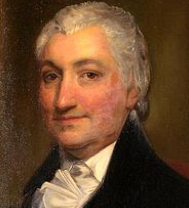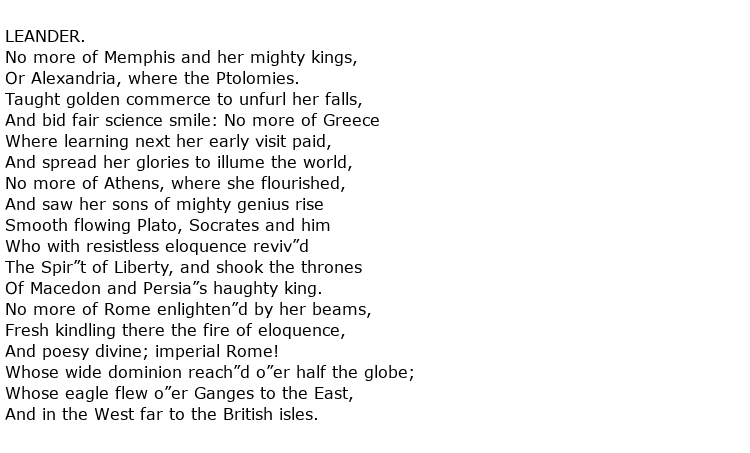 Hugh Henry Brackenridge was a Scottish-born American who was most famous for his stellar career in the legal profession as well as his political achievements, but he did find time to pursue his literary interests as well. He was a poet and novelist and wrote what some called the first fictional view of the old west in his satirical novel Modern Chivalry. Additionally he was an academic and newspaperman, being responsible for the creation of the Pittsburgh Academy, now known as the University of Pittsburgh, and the Pittsburgh Gazette. This paper still exists but is now called the Pittsburgh Post-Gazette.
Hugh Henry Brackenridge was a Scottish-born American who was most famous for his stellar career in the legal profession as well as his political achievements, but he did find time to pursue his literary interests as well. He was a poet and novelist and wrote what some called the first fictional view of the old west in his satirical novel Modern Chivalry. Additionally he was an academic and newspaperman, being responsible for the creation of the Pittsburgh Academy, now known as the University of Pittsburgh, and the Pittsburgh Gazette. This paper still exists but is now called the Pittsburgh Post-Gazette.
He was born some time during the year 1748 in a small village near Campbeltown called Kintyre. This is one of the most remote parts of Scotland, being almost at the tip of the Kintyre peninsula. At the age of five his parents took him across the ocean to set up home in York County, Pennsylvania which was then a frontier region. The young Hugh was a bright child, rising to head of a free school in Maryland by the age of 15. Four years later he went to study at the College of New Jersey, an establishment now known as Princeton University. He had political inclinations already and, in cohorts with friends James Madison and Philip Morin Freneau, he was part of the formation of the American Whig Society. Their main aim was to oppose the Cliosophic, or Tory, Society.
Brackenridge’s first attempt at published writing was a satirical piece, in collaboration with Freneau, on American manners called Father Bombo”s Pilgrimage to Mecca. Students of 18th century literature have suggested that this may have been the very first piece of prose fiction written by an American. The pair were still students and they produced an epic piece of poetry together called The Rising Glory of America which ran to many verses of what is now believed to be their view of a United States of America which would rise, in time, to rule the whole of the north American continent. It was a scholarly, almost classical piece and here are the opening lines:

Brackenridge’s education was extended by one year as he chose to take a course in divinity and, following this, he took up the post of head of an academy in Somerset County, Maryland. He was back at Princeton to complete his Masters’ but then the Revolutionary War broke out and he enlisted into Washington’s army as a military chaplain. A short period as a newspaperman followed this but another change of direction was calling him. He studied law in Annapolis, Maryland, being admitted to the bar in 1780. His first experiences as a lawyer where in Philadelphia but he was restless once more, this time deciding to head three hundred miles to the west, crossing the Appalachians on the way.
He saw in the small community of Pittsburgh an opportunity to make life better for the Scottish, Irish and German immigrants that he found there and, beyond that, a grand ambition to advance the country as a whole. His formation of the Pittsburgh Gazette happened in 1786 and, that same year, he had his first taste of political office. He used his legal skills to intervene, almost tragically in disputes such as the Whiskey Rebellion, and his reputation as a writer, politician and lawyer grew with each passing year.
In truth he had no time for numerous literary achievements but the pieces of work that he did produce, such as those mentioned above, established him as a great early American writer. His novel Modern Chivalry came out in the latter years of the 18th century with revisions in 1805 and 1815. The historian Henry Adams said that it was

Hugh Henry Brackenridge died on the 25th June 1816 in Carlisle, Pennsylvania. He was 68 years old.

